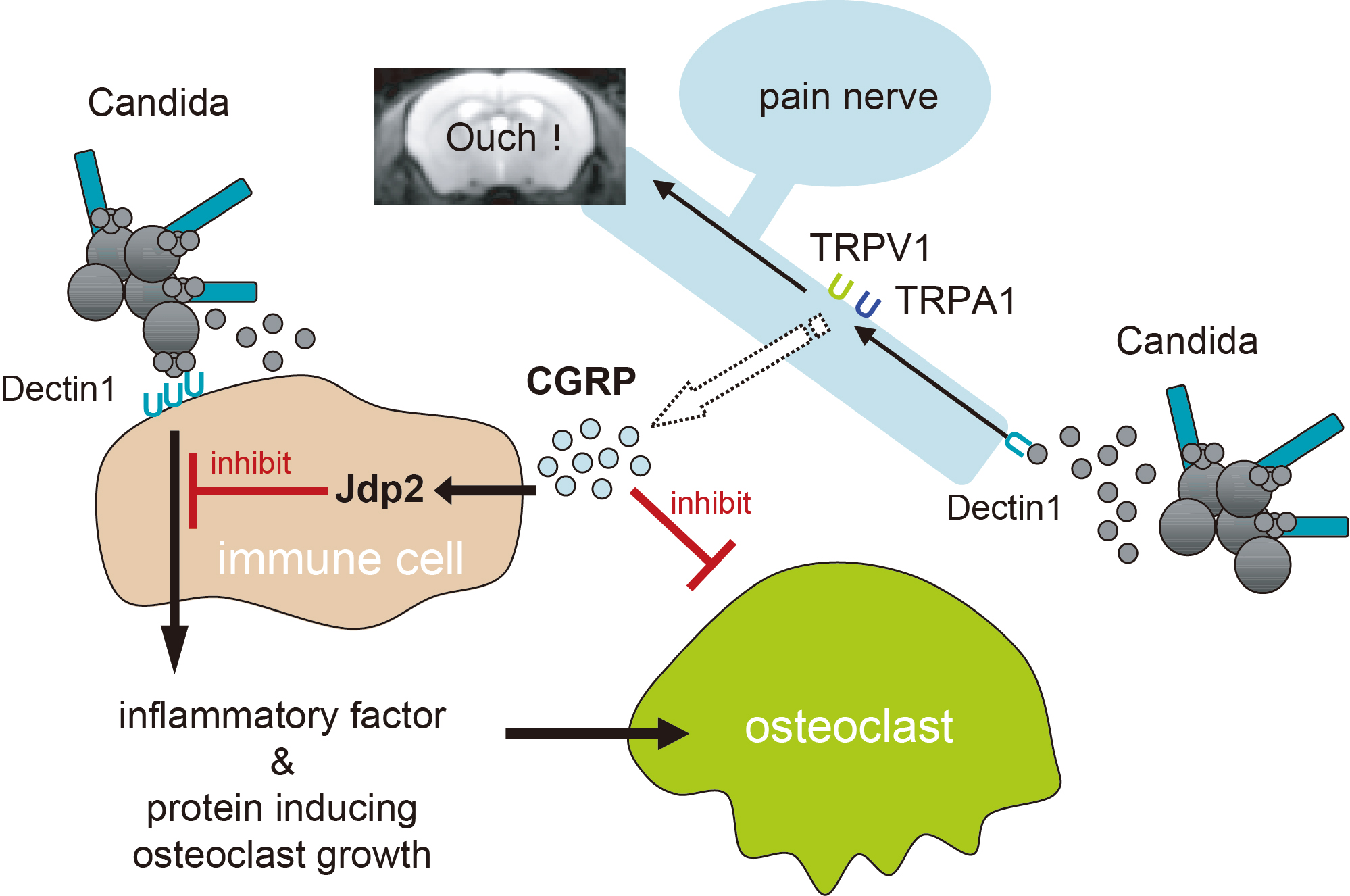Pain neuron may inhibit fungi-induced osteo-inflammation via CGRP-Jdp2 axis
Pain neuron exaggerates inflammation of contact dermatitis and psoriasis. Despite its importance in allergic and autoimmune inflammation, it is not known so far whether pain neuron modulates pathogen-induced inflammation. Scientist at NIPS discovered that pain neuron inhibits fungal inflammation and bone destruction.
“We generated the pain neuron null mice. After C. albicans derived β-glucan injection into the hind paw, these mice showed increased footpad swelling and bone destruction” said Yasunari Takayama, Ph.D. (Assistant Professor, NIPS). Pain neuron expresses Dectin-1, a β-glucan receptor, and Dectin-1 mediated inflammation is potently suppressed by pain neurons, rather than bacterial component-induced inflammation. Detailed experiments of pain neurons revealed that Dectin-1-stumulated pain neuron produces robust amount of CGRP, a neuropeptide that inhibits osteoclast and cytokine production via TRPV1 and TPRA1 ion channel activation. “TRPV1/TRPA1 double deficient mice exhibited exaggerated inflammation and bone destruction in response to β-glucan due to impaired CGRP production, and myeloid cell transcription factor Jdp2 is necessary for the immunosuppression triggered by this neuropeptide” said Takayama.
A significant discovery in this study is that transcription factor Jdp2 is induced by CGRP and directly inhibits β-glucan-induced inflammation in macrophages. Such findings are consistent with the results showing that Jdp2 deficiency hyper inflammatory phenotype induced by β-glucan was only observed in vivo.
Additional study revealed that β-glucan-induced CGRP production from pain neuron is more potent than that induced by LPS, a gram negative bacterial component.
To date, many people believe that pain neurons are deleterious for inflammation, but these findings suggest that pain neurons may function primarily in suppressing fungal inflammation, rather than bacterial inflammation.

Collaborative Researcher
Kenta Maruyama: Osaka University Immunology Frontier Research Center
Funding
Osaka University MEET project, the Takeda Science Foundation (“Visionary Research”), the Naito Foundation, a KAKENHI Grant-in-Aid for Challenging Exploratory Research, a KAKENHI Grant-in-Aid for Young Scientists A, the Japan Intractable Diseases Research Foundation, the Senri Life Science Foundation Kishimoto grant, the Japan Prize Foundation, the Mochida Memorial Foundation, the National Institute for Physiological Science (“General Collaborative Project”), the Japan Agency for Medical Research and Development (AMED) translational research network program seeds A, the Japan Rheumatism Foundation.

